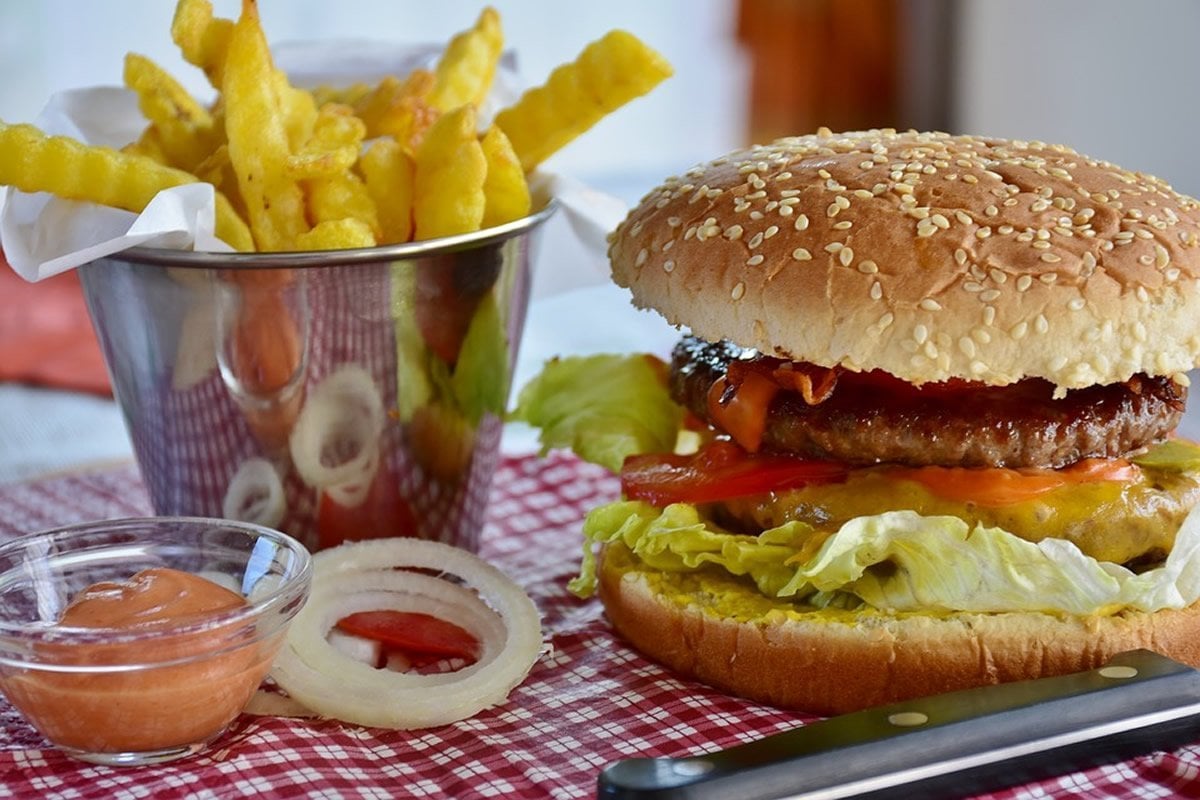Summary: High-fat diets are not only bad for your waistline, they are also bad for your brain health. A new study reveals high-fat diets contribute to hypothalamic inflammation which occurs long before symptoms of obesity arise.
Source: Yale
Much research has pointed to how an unhealthy diet correlates to obesity but has not explored how diet can bring about neurological changes in the brain. A recent Yale study has discovered that high-fat diets contribute to irregularities in the hypothalamus region of the brain, which regulates body weight homeostasis and metabolism.
Led by Sabrina Diano, the Richard Sackler Family Professor of Cellular & Molecular Physiology and professor of neuroscience and comparative medicine, the study evaluated how the consumption of a high-fat diet — specifically diets that include high amounts of fats and carbohydrates — stimulates hypothalamic inflammation, a physiological response to obesity and malnutrition.
The researchers reaffirmed that inflammation occurs in the hypothalamus as early as three days after consumption of a high-fat diet, even before the body begins to display signs of obesity. “We were intrigued by the fact that these are very fast changes that occur even before the body weight changes, and we wanted to understand the underlying cellular mechanism,” said Diano who is also a member of the Yale Program in Integrative Cell Signaling and Neurobiology of Metabolism.
The researchers observed hypothalamic inflammation in animals on a high fat diet and discovered that changes in physical structure were occurring among the microglial cells of animals. These cells act as the first line of defense in the central nervous system that regulate inflammation. Diano’s lab found that the activation of the microglia was due to changes in their mitochondria, organelles that help our bodies derive energy from the food we consume. The mitochondria were substantially smaller in the animals on a high-fat diet. The mitochondria’s change in size was due to a protein, Uncoupling Protein 2 (UCP2), which regulates the mitochondria’s energy utilization, affecting the hypothalamus’ control of energy and glucose homeostasis.
The UCP2-mediated activation of microglia affected neurons in the brain that, when receiving an inflammatory signal due to the high fat diet, stimulated the animals in the high-fat diet group to eat more and become obese. However, when this mechanism was blocked by removing the UCP2 protein from microglia, animals exposed to a high fat diet ate less and were resistant to gain weight.

The study not only illustrates how high-fat diets affect us physically, but conveys how an unhealthy diet can alter our food intake neurologically. “There are specific brain mechanisms that get activated when we expose ourselves to specific type of foods. This is a mechanism that may be important from an evolutionary point of view. However, when food rich in fat and carbs is constantly available it is detrimental.”
Diano’s long-standing goal is to understand the physiological mechanisms that regulate how much food we consume, and she continues to perform research on how activated microglia can affect various diseases in the brain, including Alzheimer’s disease, a neurological disorder that is associated with changes in the brain’s microglial cells and has been shown to have higher incidence among obese individuals.
Source:
Yale
Media Contacts:
Jami LaRue – Yale
Image Source:
The image is in the public domain.
Original Research: Closed access
“Microglial UCP2 Mediates Inflammation and Obesity Induced by High-Fat Feeding”. Jung Dae Kim, Nal Ae Yoon, Sungho Jin, Sabrina Diano.
Cell Metabolism doi:10.1016/j.cmet.2019.08.010
Abstract
Microglial UCP2 Mediates Inflammation and Obesity Induced by High-Fat Feeding
Highlights
• HFD induces a dynamic increase of Ucp2 mRNA in hypothalamic microglia
• HFD induces functional and morphological changes in arcuate microglial mitochondria
• UCP2 is required for HFD-induced mitochondrial changes in hypothalamic microglia
• UCP2 is required for HFD-induced inflammation, obesity, and POMC synaptic plasticity
Summary
Microglia play a crucial role in immune responses, including inflammation. Diet-induced obesity (DIO) triggers microglia activation and hypothalamic inflammation as early as 3 days after high-fat diet (HFD) exposure, before changes in body weight occur. The intracellular mechanism(s) responsible for HFD-induced microglia activation is ill defined. Here, we show that in vivo, HFD induced a rapid and transient increase in uncoupling protein 2 ( Ucp2) mRNA expression together with changes in mitochondrial dynamics. Selective microglial deletion of Ucp2 prevented changes in mitochondrial dynamics and function, microglia activation, and hypothalamic inflammation. In association with these, male and female mice were protected from HFD-induced obesity, showing decreased feeding and increased energy expenditure that were associated with changes in the synaptic input organization and activation of the anorexigenic hypothalamic POMC neurons and astrogliosis. Together, our data point to a fuel-availability-driven mitochondrial mechanism as a major player of microglia activation in the central regulation of DIO.







